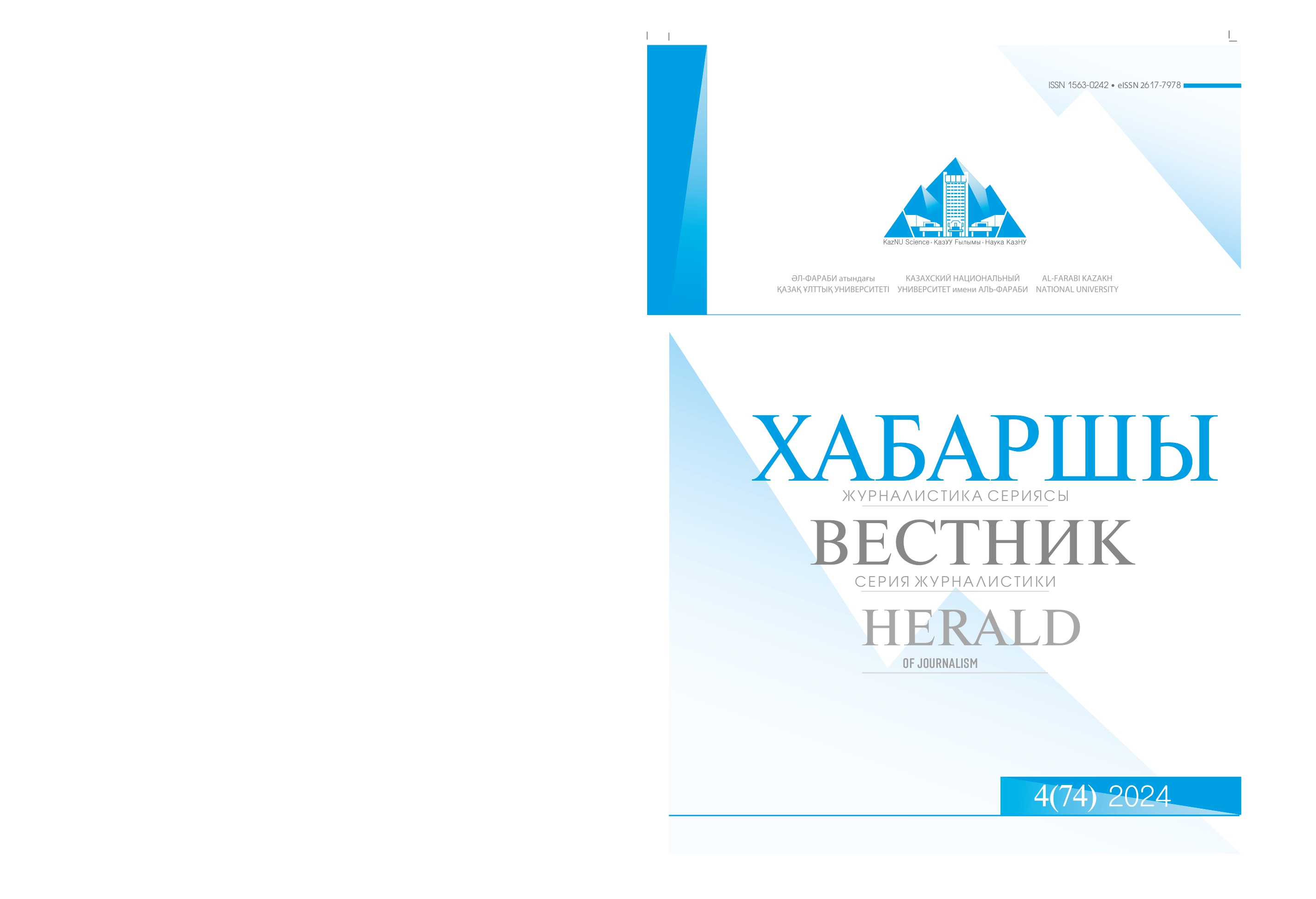Journalistic Ethics in the Age of the Internet: Challenges and Opportunities
DOI:
https://doi.org/10.26577/HJ.2024.v74.i4.6Keywords:
journalistic ethics, online media, mass media, journalism, journalist's responsibility, digitalization.Abstract
The Internet age has had a significant impact on the rapid development of journalism. The development of digital technologies in journalism generates two important consequences: first, the Internet has become the basis for the creation of new media platforms, especially online media, which has opened the way to the search, processing and rapid dissemination of information. Secondly, journalistic ethics, as a set of norms governing the publication and behavior of journalists, is facing challenges in the era of Online journalism.
The main purpose of this scientific article is to analyze topical issues related to the observance of ethical standards in online media, as well as to identify the main types of violations of journalistic ethics, such as the dissemination of false information, distortion of facts and transparency of sources.
The research uses methods of content analysis, case studies and surveys, which allows you to study and analyze the content of articles and publications in online media, as well as identify plagiarism, distortions of facts and false information.
The study examines the changes and manifestations of journalistic ethics in the context of the intensive development of Internet technologies and an increase in the number of online media. The relevance of the topic is due to the fact that the digital environment has significantly changed the ways of creating and distributing information, which, in turn, affects the observance of ethical standards in journalism. The article examines the main violations of journalistic ethics, such as distortion of facts and lack of verification, as well as manipulation of information. The impact of social media and news sharing platforms on the quality of journalistic materials and audience trust is analyzed. At the end of the study, recommendations are proposed to strengthen ethical standards in online media to ensure responsible public awareness in the digital age.
The scientific and practical significance of the article lies in the ability to actualize the issues of changing journalistic ethics in the context of digitalization, which helps to identify new challenges for professional standards of journalism. The research enriches the theoretical base of journalism and demonstrates how ethical norms are changing in the context of online media and how further academic research can develop.
The scientific novelty of the research is characterized by a comprehensive analysis of the impact of digitalization on the traditional ethical norms of journalism. The article analyzes the empirical data obtained as a result of the survey and media practices in the context of the Internet, which allows us to substantiate the conclusions and offer recommendations on adapting ethical standards to modern conditions.













